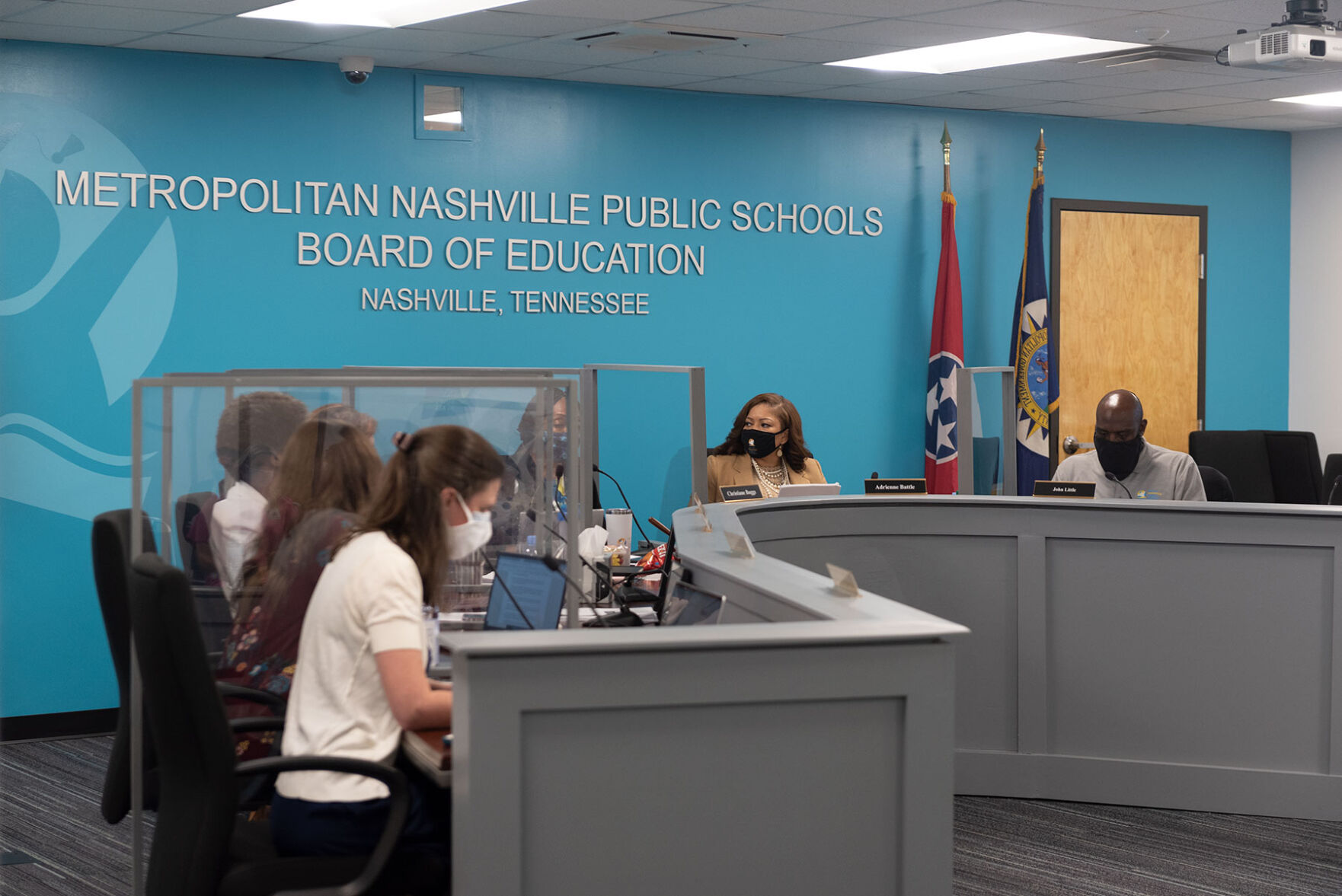When Tennessee lawmakers called for a third 2021 special legislative session in October, much of the attention went to loosened COVID-19 restrictions. But that session also introduced legislation allowing for partisan labels in district school board elections in order to increase “transparency” among voters.At the time, our own Stephen Elliott described the bill as “among the most bitterly fought during the special session, with just 52 members of the House voting for it and 20 members of the Senate — especially close margins in a legislature dominated by a single party.” Gov. Bill Lee later signed into law a modified version of the original bill, making partisan school board elections optional rather than mandatory.
The new law generated some action last week leading up to the deadline to submit plans for primary school board elections.
Ahead of the Dec. 10 deadline, Davidson County’s Republicans and Democrats engaged in a game of chicken to see who would announce their decision regarding primaries first. While the Davidson County GOP met Dec. 7 to vote on the matter, they didn’t announce their decision until the Friday deadline, keeping their cards close to their chest so as not to influence their Democratic counterparts. The Democrats also waited until Friday to announce their decision — which was, essentially, that they would do whatever the GOP is doing.
“Our conditional call for a primary is not done in hesitation, but rather out of a deep reluctance to see our school board elections made partisan due to the collective tantrum thrown by the Republicans in our General Assembly,” reads a statement issued Friday by Tara Houston, chair of the Davidson County Democratic Party.
“The DCDP does not believe this law was passed in good faith,” Houston continues, “and stands firm in our stance that this decision runs counter to voting for school board members that will best serve the interests of our students and their education, not political parties. But if the Davidson County Republican Party decides to call for a primary, we are prepared to do the same. We must ensure voters know who is on the ballot so they can cast an informed vote for the candidate who will fight for their children’s right to have a meaningful, honest, and inclusive public education experience.”
The Democrats’ view on partisan school board races matches that of the current Metro Nashville Public School board — neither body wants partisan politics brought to the board.
On Dec. 6, District 7 school board member Freda Player-Peters sent an email signed by all nine board members to Davidson County’s Democratic and Republican executive committees explaining how they believe partisan politics “would have a deeply negative impact on the effectiveness of the board” and asking the parties not to call a partisan school board election. The email, obtained by the Scene, describes how politics could affect everything from students and schools to the budget process and the board’s relationship with the director of schools. It also expresses concern over how partisan elections might prevent “regular” people from running and instead “attract polarizing candidates,” enhance the possibility of a state takeover and decrease diplomacy among board members.
Davidson County GOP chairman James Garrett views the situation differently.
“I don’t think partisanship will or should affect the focus of the school board,” Garrett told the Scene before either party had announced a decision about primary elections. He noted that the General Assembly’s decision to make school board elections partisan was “an interesting development,” and that making the decision in October “[is] forcing us to react quicker than we would’ve wanted to.”
Despite the late development on school board elections, Republicans have already hosted training for potential candidates in partnership with the Leadership Institute, a nonprofit that trains conservatives for political action. The Scene visited the Leadership Institute’s November training session just outside of Nashville, but none of the participants would agree to an interview.
When the Democrats announced their conditional plans regarding primaries last week, Garrett told the Scene he was “a bit disappointed.”
“We made our decision based solely on our concern for the students and parents of Davidson County, unencumbered by a political contingent,” Garrett continued. “To me, what [Davidson County Democrats] did was a political decision based totally on what they felt was best for their party and not what was best for the people.”
Houston told the Scene on Friday that the reasoning behind the Democrats’ decision took into account “the strategy behind this.”
“If we don’t meet their primary call,” said Houston, “are we helping [Republicans] win seats by not making it clear that there are Democratic candidates on the ballot, or by only having multiple independents potentially split a vote against a Republican?”
In 2022, four school board members’ terms will be up: District 2’s Rachael Elrod, District 4’s John Little, District 6’s Fran Bush and District 8’s Gini Pupo-Walker. Each of them, except for Pupo-Walker, has confirmed their plans to run again.
Despite the mixed reactions among political parties, candidates in Nashville’s upcoming school board races are going to have to play along with the partisan approach or take the risk of running independently. The political influence may prevent some from running, and embolden others who have the time, resources and political motivation. Nashville’s Republicans might go against the grain in a predominantly blue county and try to win over moderates with topics like masks, critical race theory, charter schools and vouchers.
Meanwhile, students and teachers face myriad difficulties, from staff burnout and shortages to technology problems and transportation issues. Will adding more politics to the equation help any of these issues? Unlikely.





